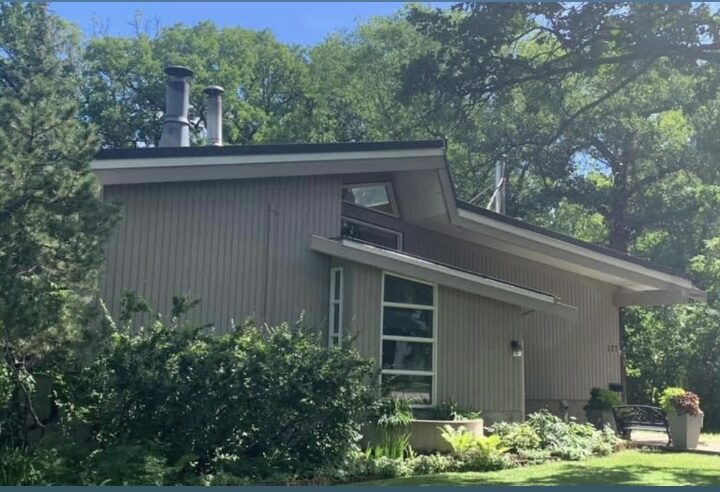For two years, Hope, now a Registered Nurse, has worked as a Hospice Care Worker at Jocelyn House, supporting residents who need end-of-life care.
Founded in 1985 as the first residential hospice in Western Canada, Jocelyn House offers high-quality, family-centered care in a home-like environment for people who are living the end of their lives. To Hope, working in hospice care is more than a job — it’s a calling rooted in compassion, connection, and dignity.
“Residents’ comfort and dignity remain the focus at every stage of their journey,” says Hope. “In a typical day, I’m helping with residents’ personal care needs, such as bathing, dressing, or repositioning for comfort, as well as meal preparation and eating.”
Beyond physical care, a meaningful part of Hope’s role includes offering emotional support, whether that’s through a conversation or even just sitting quietly with a resident. Always mindful of both physical and emotional cues, Hope monitors changes in residents’ health status or comfort levels and works closely with the nursing team to ensure residents’ needs are always met.
“People might not realize how much trust and connection are built with residents and their families,” she says. “Our role isn’t just about physical care — it’s about forming human connections, offering comfort through small moments, and being a steady presence during a very vulnerable time.”
Hope’s dedication to compassionate care extends beyond her current role. She recently graduated with a Bachelor of Science in Nursing degree, and her experience at Jocelyn House helped her build confidence, develop hands-on skills, and strengthen her understanding of holistic, patient-centered care.
“I’ve always been drawn to helping others and making a difference. I believe that everyone deserves kindness, dignity, and support, especially during challenging times. Working in health care allows me to be part of those meaningful moments and to offer comfort when it matters most.”

Systemic Challenges
According to a demographic report released in 2024, Manitoba is the youngest province in Canada (based on median age), yet our healthcare system is still struggling to meet the growing needs of our aging population.
With only 16 dedicated hospice beds in the entire province – a quarter of them located at Jocelyn House – and a shortage of Personal Care Home (PCH) beds, there aren’t enough available spaces in hospices and palliative care units to meet the increasing demands for specialized, end-of-life care.
End-of-life care delivered at a hospice facility is intended for individuals who have symptoms that are relatively well-controlled and who do not require specialized treatments in an acute care facility. In general, hospice is considered if a patient has a prognosis of one to three months and cannot or do not wish to receive care at home.
– Manitoba Health, Seniors and Long-Term Care
Manitobans often spend their final days being cared for in hospital settings, where resources are already stretched thin, contributing to longer wait times for acute care and increased stress on families, caregivers and the system overall.
“If I could change one thing about the healthcare system, it would be to increase the availability of palliative and hospice care beds,” says Hope. “It would help free up critical resources for those with acute care needs while providing those at the end-of-life stage with the compassionate care they deserve.”
Despite the systemic and emotional challenges of working in hospice care, Hope says her career is incredibly rewarding and she would recommend it to anyone looking to make a difference in people’s lives.
“If you have a passion for helping others and a commitment to compassionate care, a career in health care offers a truly meaningful and fulfilling path.”
Hope H.
HOSPICE CARE WORKER, Jocelyn House Hospice


